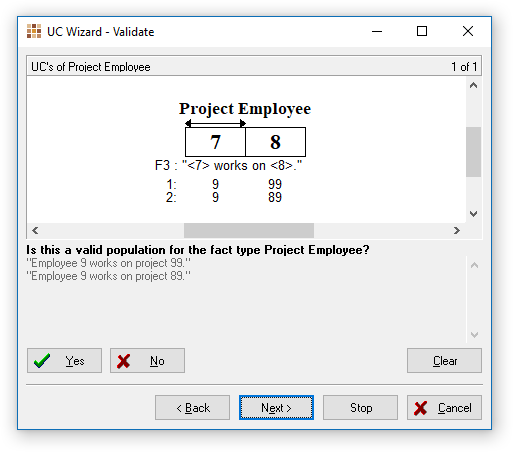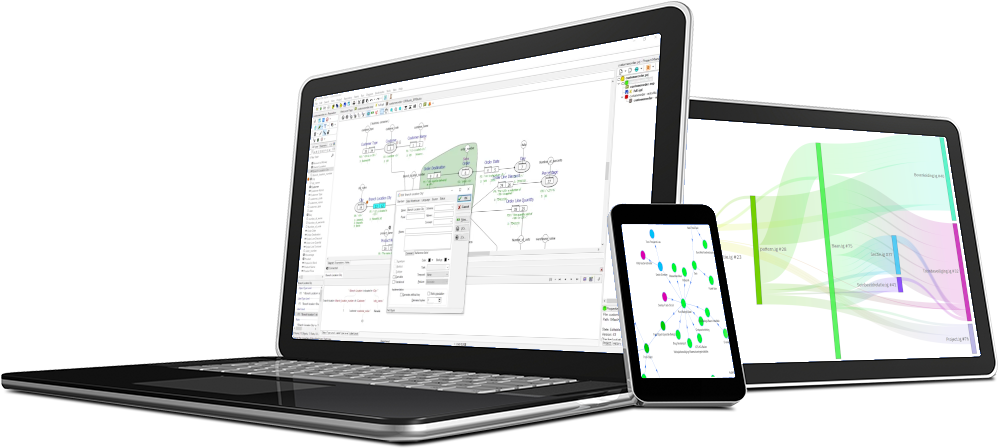Population Variations
CaseTalk derives foreign key columns adn references and even additional tables using the uniqueness and totality constraints from the fact model. Most important are the uniqueness constraints. Using the user supplied values from the newly added fact type, CaseTalk’s Uniqueness Wizard presents a list of population variations for the modelers to specify whether or not these variations are valid by answering simple yes/no questions - Yes it is a valid population / No it is not a valid population.

A first variation may look like this:
- Employee 9 works on project 99.
- Employee 9 works on project 89.
After answering the question with a simple Yes/No, a second variation is presented to the user:
- Employee 9 works on project 99.
- Employee 8 works on project 99.
Depending on the answers given by the modeler, there can be four different outcomes. We show all variations in answers to illustrate how CaseTalk then generates the appropriate tables and their foreign keys to reflect the fact type Project Employee.


